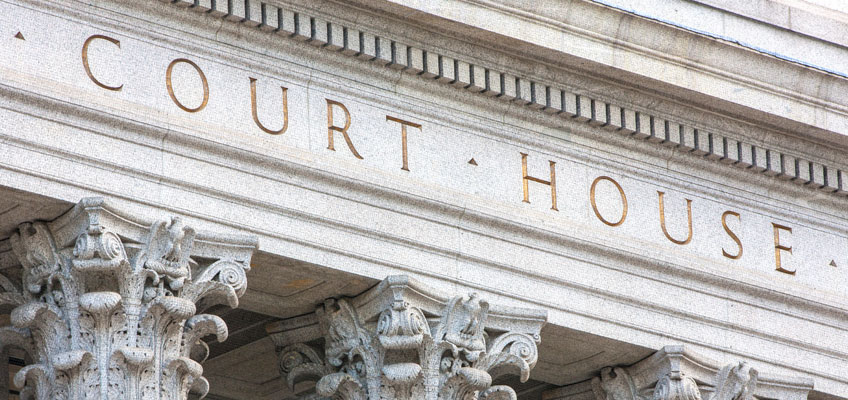Tag: State courts
-
Four state legislatures have passed bills ending judicial deference in 2025, most recently Missouri and Oklahoma

What’s the story In the 2025 legislative sessions, Kentucky, Oklahoma, and Texas enacted laws prohibiting judicial deference by state courts to state administrative agencies. In a fourth state, Missouri, the legislature approved a bill and sent it to the governor’s desk. It had not been signed as of June 13. Three states were Republican trifectas.…
-
Louisiana voters to decide on raising judicial retirement age from 70 to 75 in April 2026

Louisiana voters will decide on a constitutional amendment that would increase the judicial retirement age from 70 to 75. It will appear on the ballot on April 18, 2026. Currently, 31 states and the District of Columbia have mandatory retirement ages for judges. These laws require judges to retire either upon reaching a specified age…
-
Over the past decade, courts have disqualified 16 state ballot measures after certification, including two this year

After a ballot measure is certified to appear before voters, state courts can still invalidate the measure for various reasons, even after officials have printed the ballots. Lawsuits against ballot measures are common and often result in several being disqualified after certification during each election cycle. Since 2014, state courts removed or disqualified 16 state…
-
State supreme courts issued 257 opinions from May 29-June 11

State supreme courts issued 257 opinions from May 29-June 11. The Supreme Court of Appeals of West Virginia led the field with 27 opinions issued, followed by Mississippi with 20 and Delaware with 19. The last two weeks’ 257 opinions account for 9% of the year-to-date total of 3,013. West Virginia, again, leads with 228…
-
State supreme courts issued 91 opinions from April 10-16

State supreme courts issued 91 opinions from April 10-16, 2023. The Texas Court of Criminal Appeals and the North Dakota Supreme Court led the field with nine opinions each, followed by Delaware and Mississippi with seven each. Last week’s 91 opinions are the fewest in one week this year and account for 4% of the…
-
New York Court of Appeals issues four opinions from Feb. 6-12

The New York Court of Appeals issued four opinions from Feb. 6-12. As of Feb. 12, the court issued four opinions in 2023—seven fewer than this point a year ago. The four opinions are below: People v. Sanders People v. Myers Min Zhong v Matranga Matter of Town of Southampton v. New York State Dep’t…
-
Texas Supreme Court and Court of Criminal Appeals issue nine opinions from Feb. 6-12

The Texas Court of Criminal Appeals issued seven opinions from Feb. 6-12. The Texas Supreme Court issued two opinions from Feb. 6-12. Both courts are the state’s courts of last resort. As of Feb. 12, the court of criminal appeals issued 48 opinions in 2023—17 more than this point a year ago. The supreme court…
-
South Carolina Supreme Court rules 3-2 that the state’s abortion ban is unconstitutional

On Jan. 5, 2023, the South Carolina Supreme Court ruled 3-2 that the state’s six-week abortion ban, known as the South Carolina Fetal Heartbeat and Protection from Abortion Act, was unconstitutional. Signed in February 2021, the law banned abortion once cardiac activity is detected, usually around six weeks. The bill was blocked from taking effect…
-
All candidates for North Carolina Court of Appeals Seat 9 complete Ballotpedia’s Candidate Connection survey

Both of the candidates running in the November 8, 2022, general election for North Carolina Court of Appeals Seat 9 — incumbent Donna Stroud (R) and Brad Salmon (D) — completed Ballotpedia’s Candidate Connection survey. These survey responses allow voters to hear directly from candidates about what motivates them to run for office. The North…
-
Both candidates for Oregon Court of Appeals Position 3 complete Ballotpedia’s Candidate Connection survey

Both of the candidates running in the November 8, 2022, general election for Oregon Court of Appeals Position 3 —incumbent Darleen Ortega and Vance Day — completed Ballotpedia’s Candidate Connection survey. These survey responses allow voters to hear directly from candidates about what motivates them to run for office. The Oregon Court of Appeals, established by…

